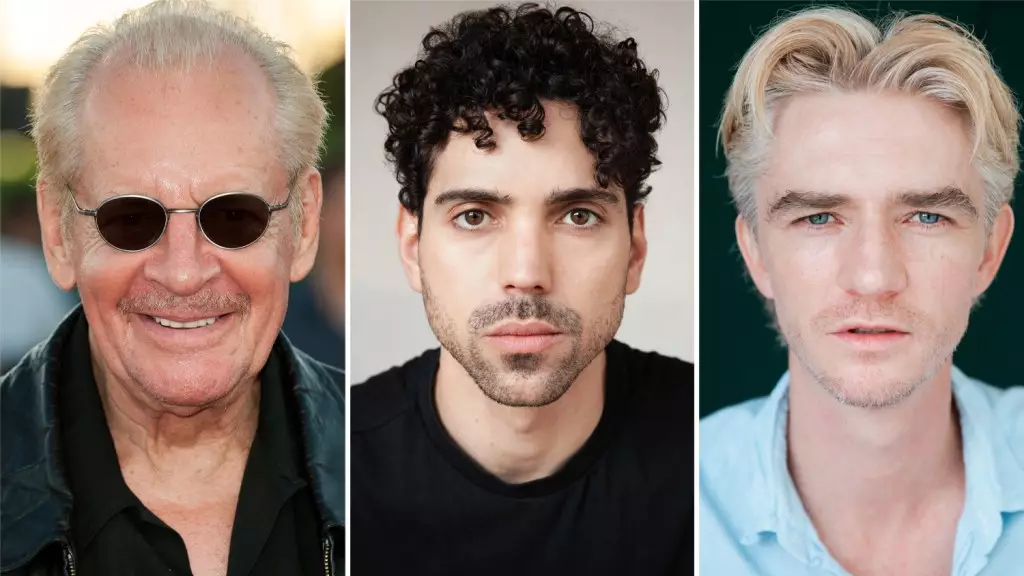In the ever-evolving landscape of documentary filmmaking, the emergence of “It Was Them” marks a significant entry that not only showcases artistic talent but also weaves a rich narrative fabric of identity, belonging, and the immigrant experience. With the seasoned filmmaker Larry Clark as an executive producer, the film promises to explore not just the musical talents but also the profound stories of Jonathan Velasquez, Eddie Velasquez, Frank Navarrette, and Carlos Ramirez—four Indigenous-Latino musicians navigating their paths in a foreign land. As they transition from the vibrant streets of South Central Los Angeles to the intricate urban tapestry of Paris, their struggles and triumphs encapsulate a broader commentary on the immigrant experience in contemporary society.
Co-directed by Edgar Morais and Luke Eberl, “It Was Them” boasts a diverse creative team that enhances its multifaceted narrative. Both Morais and Eberl are no strangers to the world of compelling storytelling, having previously earned accolades for their narrative short “We Won’t Forget.” Their collaborative spirit, characterized by a focus on human experiences and emotional truths, sets a strong precedent for this project. The documentary will feature an original soundtrack crafted by its subjects, a creative choice that emphasizes their authenticity and lends a raw, integral musicality to their journey.
Furthermore, the international collaboration spans across the U.S., Portugal, and Germany, thus enriching the narrative with varying cultural perspectives. With producers like Sol Tryon and Rodrigo Areias, both known for their critically acclaimed works, the film is positioned to resonate with a global audience, highlighting the universal themes of friendship, artistic expression, and resilience.
At its core, “It Was Them” is not merely about music; it is an expansive chronicle of the lives of four friends whose lives intersect with the realities of immigrant survival. The documentary aims to underline the dichotomy of hope and struggle that many immigrants face when transitioning to a new environment. It looks at the labyrinthine streets of Paris, contrasting them with the backdrop of South Central L.A., thereby highlighting the stark differences in cultural landscapes.
This film’s focus on Indigenous-Latino musicians also sheds light on underrepresented voices in the music industry, focusing on their personal experiences as they seek acceptance and recognition in a new cultural milieu. The soundtrack created alongside their story becomes a testament to their heritage and determination, further inviting audiences to engage emotionally with their journey.
Larry Clark’s involvement as an executive producer brings a wealth of experience and a keen eye for nuanced storytelling, often centered on youth culture and societal issues. Clark’s past works, from “Kids” to “Bully,” have examined the darker edges of adolescent life with compelling honesty. His artistic sensibilities and the thematic explorations of identity and rebellion resonate powerfully within the framework of “It Was Them.”
The participation of both established industry names and emerging filmmakers strengthens the documentary’s credibility, positioning it at the intersection of art and activism. The anticipation surrounding the film is fueled by the filmmakers’ distinctive styles and their commitment to authentic storytelling that encapsulates the complexities of modern life.
“It Was Them” is more than a documentary; it is a cultural dialogue that delves into the lives of those often overlooked in mainstream narratives. By spotlighting the creative journey of four Indigenous-Latino friends, the film holds the potential to ignite conversations around identity, the immigrant experience, and the transformative power of music.
As the production progresses, it’s clear that Morais and Eberl, under Clark’s seasoned guidance, are crafting a project that is rich in emotional depth and artistic ambition. Audiences can look forward to a film that not only entertains but also educates, promoting a deeper understanding of the multifaceted immigrant experience through the universal language of music.


Leave a Reply